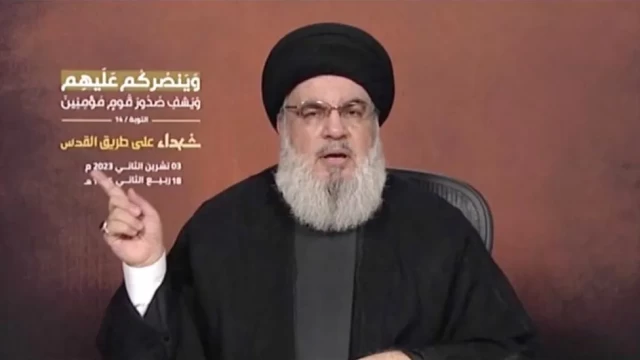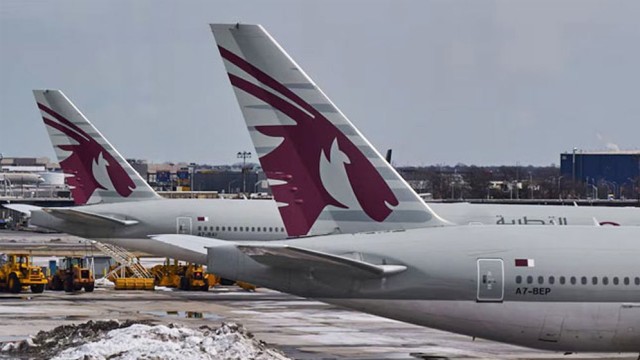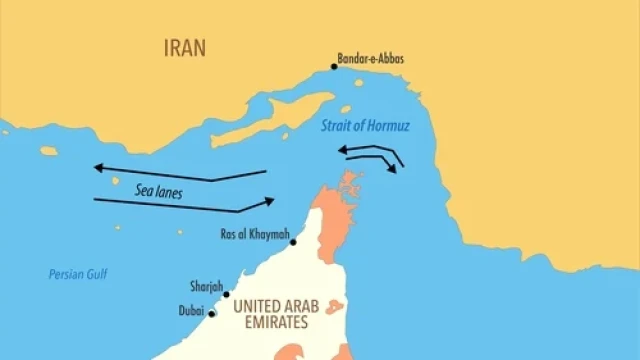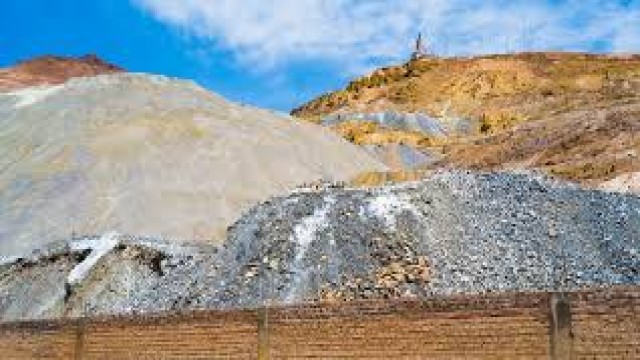Hezbollah has regularly attacked Israeli armor and military sites from across the border in Lebanon during the past month.
What is Hezbollah, and where is Lebanon?
Hezbollah is a powerful Shia Muslim organization that commands Lebanon's strongest military force and has significant political clout.
Iran, the most powerful Shia nation in the area, founded it in the early 1980s in opposition to Israel. During Lebanon's civil war, Israel's army had taken control of southern Lebanon at the time.
Since its participation in the 1992 national elections, Hezbollah has grown to be a significant political force.
Its armed branch has attacked US and Israeli forces in Lebanon with terrible results. Israel claimed to have been driven out of Lebanon by Hezbollah when Israel left the country in 2000.
Since then, Hezbollah has kept thousands of fighters in southern Lebanon along with an enormous missile stockpile. It is still against Israel being in areas that are disputed borders.
The Arab League, Israel, the Gulf Arab nations, and Western states have all recognized it as a terrorist organization.
Following a lethal cross-border operation by Hezbollah in 2006, Israel and Hezbollah were thrust into full-scale warfare.
Israeli forces moved into southern Lebanon in an attempt to neutralize Hezbollah's threat. It did, however, manage to survive, and since then, it has amassed a larger combatant force and acquired more advanced weaponry.
Who is Hassan Nasrallah, the leader of Hezbollah ?
Since 1992, Sheikh Hassan Nasrallah, a Shia cleric, has served as Hezbollah's leader.
He was instrumental in making it both a military and a political power.
He maintains tight ties with Ayatollah Ali Khamenei, the Supreme Leader of Iran.
These originate from 1981, when Ayatollah Ruhollah Khomeini, the first Supreme Leader of Iran, designated him as his personal envoy in Lebanon.
Nasrallah has reportedly avoided public appearances for years out of concern that Israel might carry out his assassination.
Nonetheless, he continues to be highly regarded by Hezbollah and gives weekly lectures on television.
How strong is the Hezbollah military?
One of the world's most well-equipped non-state armed groups is Hezbollah. Iran supplies the equipment and funds it.
According to Sheikh Hassan Nasrallah, it has 100,000 fighters, however other estimates put the number between 20,000 and 50,000.
Many of them participated in the Syrian Civil War and are highly skilled and resilient to combat.
Based to estimates from the Center for Strategic and International Studies think tank, it possesses about 130,000 rockets and missiles.
Its tiny, unguided surface-to-surface artillery rockets make up the majority of its armament.
However, it's also believed to possess guided missiles that can strike deep within Israel, as well as anti-aircraft and anti-ship missiles.
Compared to what Hamas has available to it in the Gaza Strip, this is far more advanced.
Is Hezbollah capable of attacking Israel?
Hezbollah has been bombing military locations in northern Israel since the Hamas attack on October 7.
It has fired anti-tank missiles at armored vehicles, thrown rockets into Israeli positions, and used explosive drones to assault military objectives.
In retaliation, the Israel Defense Forces (IDF) have attacked Hezbollah sites in Lebanon with artillery, tank, and airstrikes.
Israel has evacuated thousands of residents from the region and has claimed the lives of Hezbollah fighters and Israeli soldiers.
IDF personnel were on "very high alert" near Israel's northern border, according to spokesman Daniel Hagari.
If Hezbollah launches a second front in the Syria, Israeli Prime Minister Benjamin Netanyahu has vowed to launch a "unimaginable" scale of counterattack.
Why does Israel fear Hizbullah?
Taken literally as "party of Allah," Based in Lebanon, Hezbollah is both a political party and terrorist group representing Shia Muslims. During the Lebanese Civil War, it was founded in 1982 with support from the Iranian Revolutionary Guard Corps. Hezbollah began as a motley group during the height of Israel's invasion of Lebanon in 1982 and has since grown to become the largest and best-equipped militant organization in the Middle East. It was founded forty years ago.
Iran provides financial and other support to Hezbollah, which is led by Hassan Nasrallah and is a major vehicle for Tehran's influence across the Arab world. In addition to supporting President Bashar Assad's forces in Syria's civil war against the United States and its allies, Hezbollah has participated in military operations in both Iraq and Syria. Israel worries that Hamas might get cutting-edge equipment and instruction from Hezbollah, allowing the group to carry out more daring and lethal assaults against Israel.
Hezbollah claims to have 100,000 skilled warriors, having greatly increased its military might over the years. It has cutting-edge drones that are able to strike and collect data. It is equipped with cutting edge drones for both offensive and reconnaissance roles, as well as precision-guided missiles that can travel anyplace in Israel. Hezbollah has set its sights on vital infrastructure in Israel, including power plants. Ships may be prevented from reaching Israel's Mediterranean shore by Hezbollah's missiles.
The majority of Hezbollah's finance and weaponry come from Iran, according to the Council on Foreign Relations. Based on predictions from the US State Department for 2020, it sends the group about $700 million annually. Hundreds of millions of cash are also sent to Hezbollah by legitimate companies, transnational criminal organizations, and the Lebanese diaspora.
Though Hezbollah and Israel have not yet returned to full-scale hostilities, the organization reaffirmed in its 2009 manifesto that it would destroy the state of Israel.
When Israeli forces were "defeated" by Hezbollah ?
The most significant accomplishment of Hezbollah in the last forty years has been its guerilla warfare against Israeli forces occupying southern Lebanon. The triumph that compelled Israel's forces to leave the country in May 2000 without signing a peace treaty won Hezbollah recognition throughout the Middle East. Hezbollah's popularity and influence in the Middle East increased as a result of this triumph.
Hezbollah conducted a cross-border operation in 2006, taking two Israeli soldiers as part of a prisoner swap agreement with Israel, feeling emboldened by the Israeli withdrawal in 2000. This resulted in the 34-day July War, which had an unclear outcome.
Hassan Nasrallah, the leader of Hezbollah, referred to it as a historic "divine and strategic victory". "I could provide the exact number if necessary, but how is it possible for the human mind to comprehend that a few thousand of your Lebanese resistance sons?" They were confronted by forty thousand officers and soldiers, four brigades of Israel's elite forces, three squads from the Army Reserve, the strongest tank in the world, and the most potent army in the region for thirty-four days while standing in the open space without air cover. This was made possible by an air bridge that carried smart bombs from America to "Israel" via Britain. Nasrallah had made this statement during a speech.
The 34-day conflict was deemed a failure and a lost opportunity by an Israeli commission investigating the conflict. The commission declared, "Overall, we regard the Second Lebanon War as a serious missed opportunity." "Israel started a protracted conflict that didn't end with a definite military triumph. For several weeks, the largest army in the Middle East faced resistance from a small group of a few thousand men in a semi-military organization. The army had advantages in size, technology, and complete air superiority. Throughout the conflict, Israel's civilian population was under constant rocket fire, and the IDF was unable to effectively counter this threat."
News Source: BBC/REUTERS































Comment: